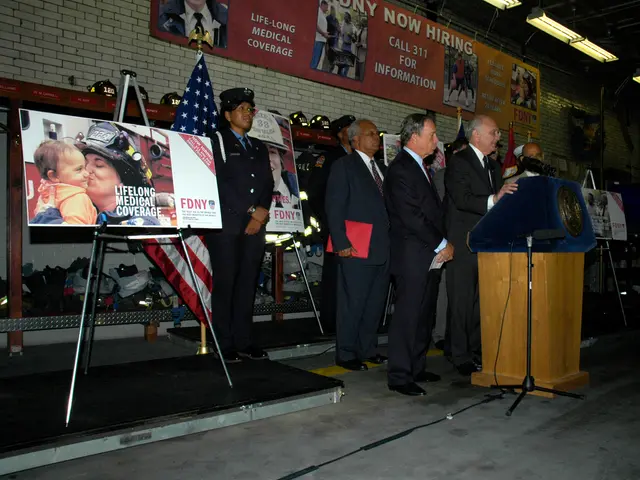Vietnam and South Korea strengthen strategic partnership for a more intelligent trade future together
Vietnam and South Korea Agree on New Strategic Vision for Economic Cooperation
During a state visit to South Korea, Party General Secretary Tô Lâm and President Lee Jae Myung agreed to jointly shape a new strategic vision for Vietnam-South Korea economic cooperation. The aim is to expand bilateral trade to $150 billion by 2030.
The strategic vision seeks to reduce reliance on single markets amid global trade uncertainties and U.S. tariff pressures by broadening economic ties and strengthening sustainable, balanced trade. Key features of this strategic vision include:
- Expanding trade in key sectors: The two countries aim to expand trade in semiconductors, machinery, agricultural products, textiles, seafood, and other key sectors, leveraging South Korea’s advanced manufacturing and Vietnam’s export capacity.
- Enhancing cooperation in supply chains and mutual investments: South Korean firms are encouraged to invest or expand in Vietnam’s hi-tech industrial parks, digital industries (AI, semiconductors), infrastructure, renewable energy, smart cities, and global value chains.
- Infrastructure and energy collaboration: South Korean companies will participate in Vietnam’s strategic projects such as nuclear power, renewable energy, electricity grids, and high-speed rail.
- High-level economic coordination mechanisms: Establishment of Deputy Prime Minister-level Economic Dialogues, inter-governmental committees, and joint committees on trade, industry, and energy cooperation for continuous monitoring and development of bilateral ties.
- Joint participation and coordination within regional and multilateral frameworks: Aligning broader economic goals and fostering smoother trade relations through participation in ASEAN-Korea FTA, RCEP, and Indo-Pacific Economic Framework for Prosperity.
- Promoting trade facilitation measures and infrastructure investments: Streamlining cross-border commerce, regulatory alignment, and sustainable trade growth through trade facilitation measures and infrastructure investments.
This vision represents a comprehensive approach to elevate Vietnam-South Korea economic ties to a "higher level," focusing on mutual benefits, technological advancement, green innovation, and resilience against geopolitical trade challenges.
The leaders also agreed to strengthen cultural, educational, and people-to-people exchanges, with the proposal for the RoK to share experience in developing its cultural and entertainment industries and establish a Vietnamese Cultural Centre in the RoK. They discussed regional and international issues of mutual concern, including the importance of maintaining peace and stability in the East Sea (South China Sea), ensuring lawful and legitimate rights in line with international law and the 1982 United Nations Convention on the Law of the Sea (UNCLOS).
President Lee expressed his hope that Vietnam would support Korean enterprises in expanding their presence, improving operational efficiency, and investing long-term in the country. The leaders exchanged comprehensive, strategic views on the situation in each country and Việt Nam-RoK relations over more than 30 years since diplomatic ties were established.
President Lee voiced his belief that Tô Lâm's visit would generate strong momentum to deepen mutual understanding and advance the RoK-Việt Nam Comprehensive Strategic Partnership. President Lee congratulated Việt Nam on its development achievements and growing international standing, and expressed confidence in Tô Lâm's leadership.
The leaders agreed to direct agencies and localities in both countries to work closely in implementing the action programme for the implementation of the Việt Nam-RoK Comprehensive Strategic Partnership. They also agreed to broaden cooperation through all channels, creating a solid foundation to promote and expand bilateral cooperation in all fields. Tô Lâm reaffirmed that Việt Nam values its relations with the RoK and wishes to work with RoK leaders to guide bilateral cooperation towards more substantive, effective, and sustainable progress.
The RoK pledged to further increase official development assistance (ODA) in areas of Vietnam's interest, including infrastructure, research and development, and climate change adaptation. The RoK also agreed to raise quotas and broaden sectors for admitting Vietnamese workers. The two leaders committed to facilitating trade and opening their markets to each other's goods, and supporting capacity-building for Vietnamese enterprises to participate more deeply in Korean global supply chains.
Immediately after the talks, the leaders witnessed the exchange of ten cooperation documents between ministries, agencies, and organizations of the two countries in defense, security, economy, trade, labor, and culture. General Secretary Lâm affirmed Vietnam's readiness to facilitate the expansion of major Korean investments in priority sectors such as infrastructure development, high-tech electronics manufacturing, semiconductors, artificial intelligence (AI), renewable energy, and smart cities.
This strategic vision reflects both countries’ commitment to a balanced, inclusive, and future-oriented partnership. The leaders agreed to strengthen political trust and enhance strategic coordination in key areas such as diplomacy, defence, and security.
Read also:
- Court petitions to reverse established decision on same-sex marriage legalization
- Minister Bärbel Bas expresses doubts about her tenure as a minister following a recent interview during the summer.
- Trump's enforcement actions in Washington D.C.: Insights from the political arena
- Critique on Gender Issues: Deniz Yücel draws a parallel between Minister of Culture and former East Germany's chief ideologist Kurt Hager





